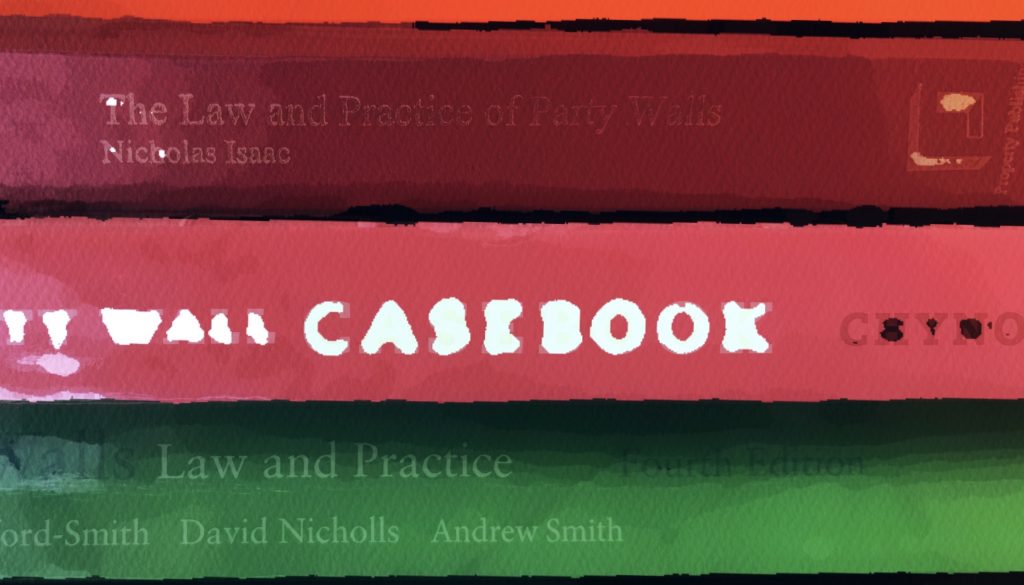Bibizadeh v Dodosh (Unreported, 15th September 2015) Central London County Court
Transcript available at: Bibizadeh v Dodosh B20CL043
Court:
This is a decision of HHJ Bailey at the Central London County Court. It is not, therefore, binding on other county courts, although as a decision by an experienced and specialist circuit judge, it is likely to be persuasive in other cases at this level.
Summary:
The hearing of a preliminary issue in which it was decided, with reference to an appointment made under section 10(4), but of more general application, that whilst it is necessary to comply strictly with the requirements of the Act as the basis for a consequent step, it is not necessary to explicitly recite those requirements when taking that step. In this case that meant that an appointment in fact based on a refusal to appoint under section 10(4)(a) did not need to state that is was being made on that basis.
Facts:
The Bibizadehs served party wall notices in July 2014 under section 1 and section 6. Surveyors were appointed and an award was eventually made on 23rd December 2014 which was the subject of the appeal. This hearing was of a preliminary issue as to jurisdiction. The Dodoshes had initially appointed Mr Flight as their surveyor, but he declared himself incapable of acting in August 2014, and was replaced by Mr Antino. In September 2014 the Bibizadehs asserted that they were “withdrawing” their notices, and would not be carrying out any notifiable works. However, at the beginning of October 2014 they commenced works, and caused damage to the Dodoshes garden and structures on/in the garden, which prompted the Dodoshes to apply for and obtain an injunction. At the return date, the Bibizadehs gave an undertaking, effectively not to carry out notifiable work, but they failed or refused to appoint a surveyor of their own to deal with residual party wall issues left after their “withdrawal” of notices. Mr Antino and solicitors acting for the Dodoshes both requested that the Bibizadehs appoint a surveyor, but solicitors for the Bibizadehs expressly stated that they were “not prepared to… appoint a party wall surveyor”. The Dodoshes consequently appointed Mr Stevens under section 10(4). Mr Antino and Mr Stevens selected Mr McAllister as third surveyor. About four weeks after Mr Stevens had accepted his appointment, the Bibizadehs indicated an intention to appoint Mr Redler as their surveyor, but did not apparently do so before the award being appealed was made. The preliminary issue was whether Messers Antino and Stevens had jurisdiction to make that award.
Decision:
The judge held that (1) the Bibizadeh’s solicitors’ letter constituted a clear refusal to appoint a surveyor such that the Dodoshes were entitled to appoint Mr Stevens; (2) Mr Flight’s resignation was valid, as, therefore, was Mr Antino’s appointment; and (3) the overlap between the common law proceedings and the award appealed, in terms of facts and matters common to both, did not prevent the surveyors from making a determination on such facts and matters “provided… it is appropriate for them to do so for the purposes of the award”. The preliminary issue was therefore determined against the Bibizadehs.
Comment:
The refusal to appoint was clearly a correct decision on the facts, and illustrates the need for solicitors appointed in party wall matters to understand the Act properly, so that the implications of what they say on behalf of their clients is fully appreciated. The issue of resignation under section 10(5) is covered much more comprehensively in the case of Mills v Savage and requires no more comment here, save perhaps to say that this decision is obviously consistent with that later decision. Perhaps the most interesting legal question arising, touched upon but not really fully investigated in this judgment, is the extent to which party wall surveyors have or retain jurisdiction in relation to party wall matters even when a common law claim is already on foot. This decision, particularly when read together with the decision in Farrs Lane Developments (which will be the subject of the next update), suggest that the surveyors’ jurisdiction will be construed more widely by the courts than some may have previously thought.
